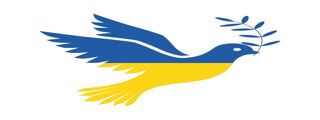I started my teaching career teaching Functional Skills to offenders in a prison environment and despite embracing the natural challenges that it brought, I started to develop an overwhelming irritation with the education system overall. It became gradually apparent students were just going through the motions of what appeared to be ‘learning’ and I was simply learning the ropes of being a teacher. I thought moving towards secondary teaching would challenge this perception and facilitate more purposeful teaching. How naïve was I! Secondary education was yet a very similar experience – education is dominated by the regimented structure of learning and assessments as well as dealing with a curriculum that is problematic in terms of differentiation, lack of creativity and serious concerns surrounding EDI.
My own experiences of teaching English at secondary level have led to the critical perspectives I have towards English education. The current secondary English curriculum is reductive, culturally biased, lacks creativity and is not diverse or inclusive through its content, and in my experience delivery too.
The issues of the curriculum affects both students and teachers alike. A previous study that I carried out investigated teachers views and experiences teaching English at KS3 and KS4. The study found that teachers felt there were issues relating to curriculum purpose, design and assessment, creativity, diversity and inclusivity and improving opportunities for students. The findings showed a clear consensus amongst teachers that there are issues with the curriculum now and concludes that in actuality the curriculum is only fit for purpose for a certain group of people in society while it marginalises others.
For me, teaching English was becoming more and more frustrating as I was aware that learning cannot be ‘measured’ in a specific time and place and in actuality, learning and thinking are intertwined and can occur much later than the actual teaching (Griffin, 1989). But within a school setting, you are faced with the pressure of teaching a demanding curriculum in addition to the continuing pressure of what feels like never ending assessments and death by exam practice!
The current National Curriculum in English identifies the expectations for students’ reading, appreciating the ‘depth and power of the English literary heritage’ and demonstrating an understanding of grammatical constructs. These areas, alongside others identified in the National Curriculum. (DfE, 2014), demand a didactic approach to what students are expected to learn. It leans itself to a ‘knowledge-rich’ curriculum that Ofsted (2019) have identified and what many schools now follow to achieve and compete in the league tables with no real critical examination of what this actually means.
The notion of a ‘knowledge-rich’ curriculum highlights the cultural bias policy makers have shown in their curriculum intentions as students are exposed to only English literature. Here, you could use Foucault’s (1991), ‘regime of truth’ to help explain how the policymakers, who are often unrepresentative of the students who are the recipients of their policies. have put interventions in place to enforce students’ adherence and what they perceive to be the ‘truth’. The elite have determined what ‘real’ and ‘valuable’ knowledge is in the English curriculum. But this very notion of ‘knowledge’ can be contested (Young, 2016). The power attached to this knowledge is arbitrary and policymakers believe this is the correct way of teaching and learning. The perception of knowledge in the curriculum can be considered to be a technical term; by this knowledge is identified to be important and valuable and then transmitted to the student. But critics argue that this view of knowledge is ‘dead’ (Ellsworth, 2009:12). An alternative way of viewing knowledge is that is continuously evolving through students’ participation and interaction with it and the connection they make between the knowledge and their own experiences.

The concept of curricular justice should have been critically reflected on when the policy makers were designing this ‘knowledge-rich’ curriculum and the consideration of experience, culture and the needs of the least advantaged members of society needed to be taken into account. At the moment, teachers are having to compensate for a socially divisive and alienating curriculum. We need to ensure that to achieve a socially just curriculum we are drawing on the wider knowledge and cultural experiences of the students within the school (Young et al., 2014). School leaders, when designing the curriculum, needed to ensure that teachers overcome this ‘fear of knowledge’ (Boghossian, 2007: 139). This is when the teaching practice is driven by managing behaviour and attitude, continuous assessment and data analysis; where the focus on what and how they are learning is often not given the importance it deserves. We need to adopt Young’s (2013) idea that the transfer of knowledge should be far from a dictated process and teachers should be central in promoting participation and this will then lead to improving attainment (Rouse, 2007).
References
Boghossian, P., (2007), Fear of Knowledge: Against Relativism and Constructivism, Oxford: Clarendon Press, p 139
Department of Education (2014), National Curriculum English KS4, https://assets.publishing.service.gov.uk/government/uploads/system/uploads/attachment_data/file/331877/KS4_English_PoS_FINAL_170714.pdf
Ellsworth, E. (2005), Places of learning: Media, architecture, pedagogy. New Inward, Outward, Onward, York: Routledge Falmer
Foucault, (1991), in Ball, S, J., (2013), (ed), Foucault and Education: Disciplines and Knowledge, London: Routledge
Griffin, P., (1989), Teaching takes place in time; learning takes place over time, Mathematics Teaching 126, Derby: ATM
Ofsted (2019), https://assets.publishing.service.gov.uk/government/uploads/system/uploads/attachment_data/file/770924/Proposed_education_inspection_framework_draft_for_consultation_140119.pdf.pdf
Rouse, M. (2007), Enhancing effective inclusive practice: Knowing, doing and believing, Wellington: New Zealand Ministry of Education
Young, M., (2013), Overcoming the crisis in curriculum theory: a knowledge-based approach, Journal of Curriculum Studies, 45:2, pp. 101-118
Young, M., Lambert, D., Roberts, C., and Roberts, M., (2014), Knowledge and the Future School: Curriculum and Social Justice: London: Bloomsbury Publishing

